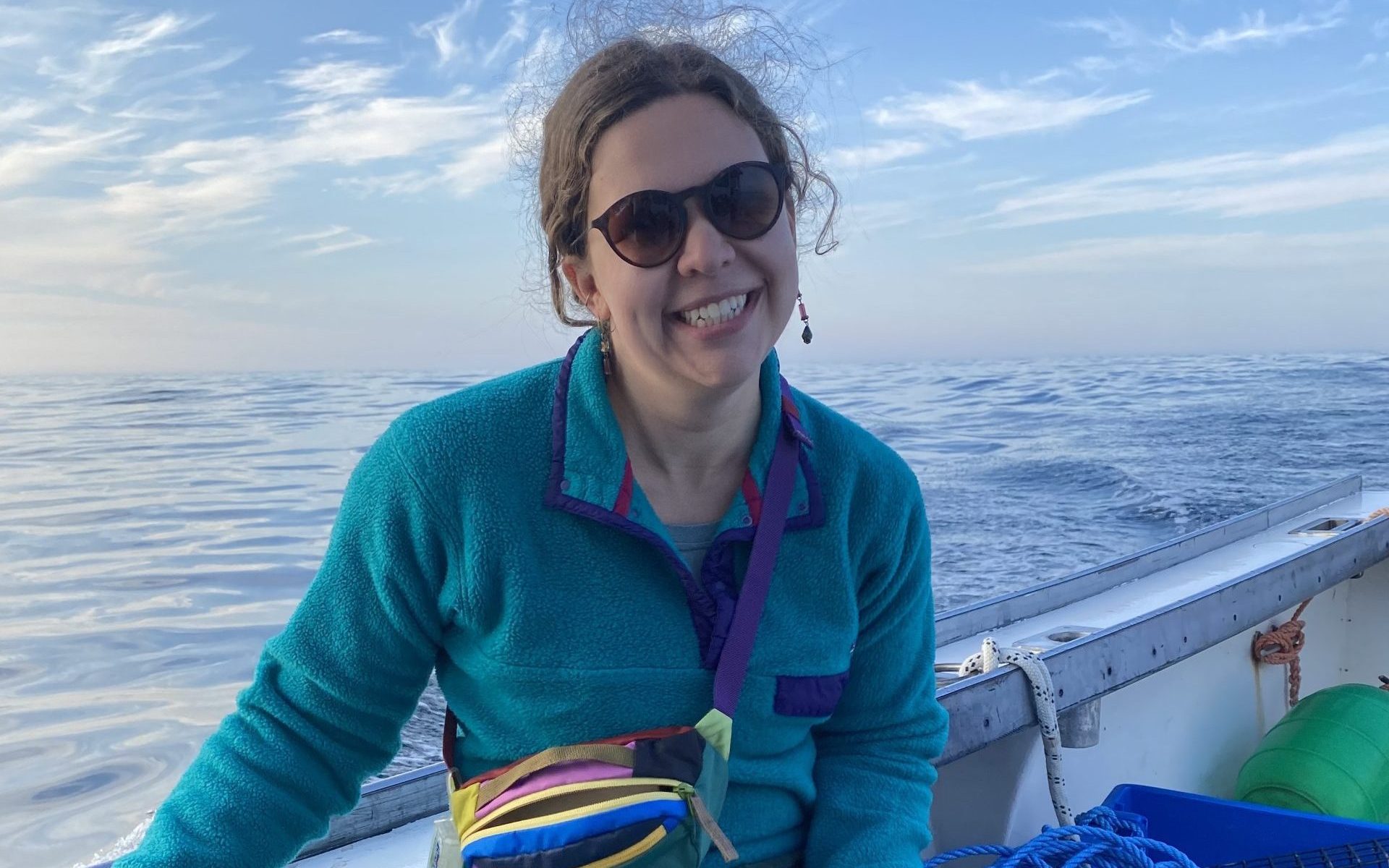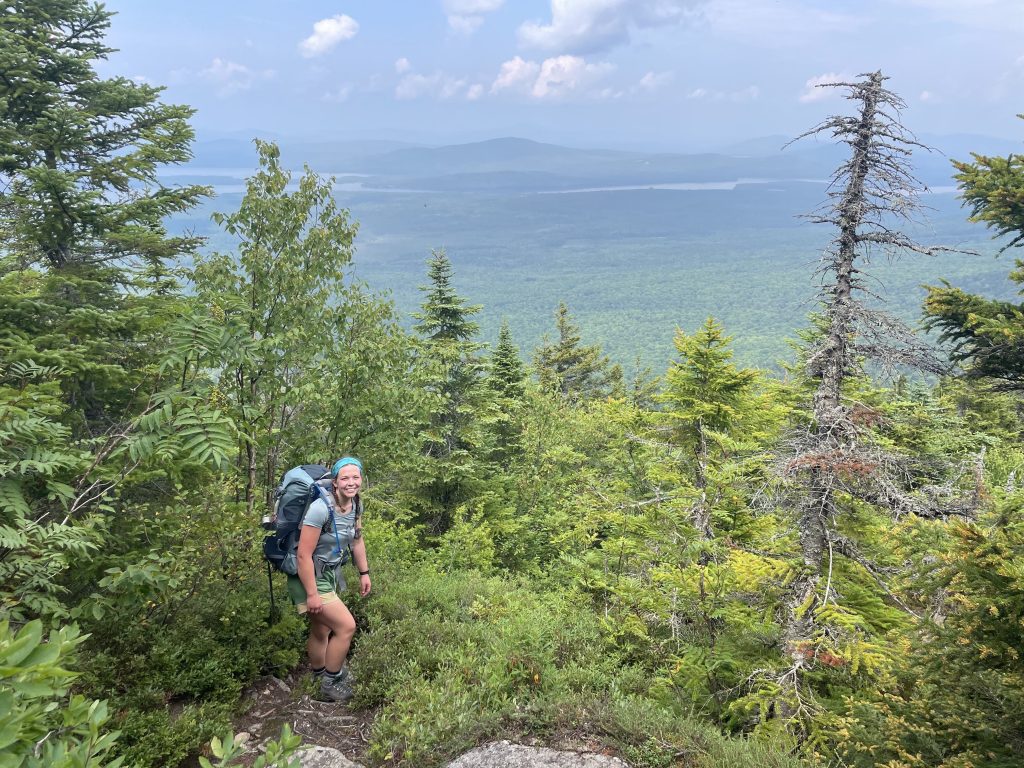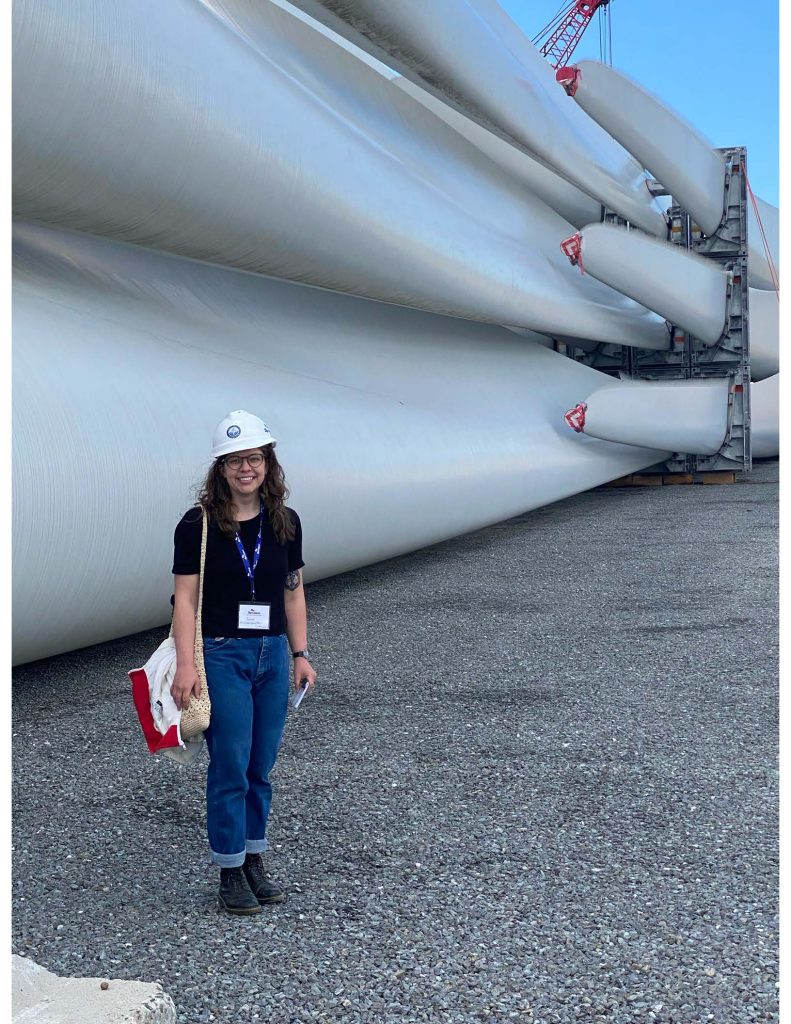
Julia Hiltonsmith: Bridging Community and Environmental Planning through Storytelling
“You’ve got Maine on the brain,” my father used to tell me. Growing up in Memphis, TN, I often found my thoughts drifting far beyond my urban hometown, captivated by the idea of Maine’s sweeping landscapes and vast beauty. Growing up in the bustling city streets of Memphis cultivated my passion for human connection and community, but Maine’s natural wonders inspired my curiosity about the nonhuman world and fueled my desire to one day help preserve it. Those early imaginings – of people, place, and environment inextricably linked – have since become the anchor of my work as a PhD candidate in the Anthropology & Environmental Policy program at the University of Maine.

Throughout my academic journey, I have sought to bridge the spaces between community and environment, science and story. My research centers on renewable energy development, with a particular focus on land-use and marine spatial planning. Throughout this work, I have been driven by the power of narrative: how communities understand and connect to the places they call home, and how these connections shape responses to environmental change. From the classroom to the field, I have learned that environmental issues are never purely technical challenges, but are deeply embedded in cultural meanings, social relationships, and historical experiences. My work seeks to understand how people make sense of environmental transformations and how their stories, identities, and values can inform more equitable planning processes.
Collaboration and meaningful stakeholder engagement are at the heart of my approach – both in my scholarship and in my personal values. I am deeply committed to building genuine relationships and cultivating connections with individuals and communities. For me, fostering these partnerships is fundamental to creating lasting, positive change for both people and the environment.
This commitment to partnership led me to begin working as co-PI alongside Dr. Christine Beitl in 2023 on a project with Maine’s Department of Marine Resources (DMR) and the Maine Coast Fishermen’s Association (MCFA). This collaborative project uses storytelling and in-depth interviews with fishermen to document the socio-ecological history of the area designated for Maine’s Offshore Wind Research Array. This research has deepened my understanding of how cultural identity and local knowledge not only enrich discussions about policy, but are essential for bridging the gap between technical planning and lived experience. Our approach elevates people’s connection to place, acknowledging how this connection can be threatened by large-scale development of any kind. Our work demonstrates that, by centering community voices, we can advance solutions to these challenges that guide us toward ways of navigating change that empower communities and strengthen the resilience of both people and place.

My involvement in offshore wind planning led me to work closely with Maine Sea Grant as graduate assistant beginning in 2024, where I witnessed the impact of their commitment to building meaningful partnerships and supporting community-driven solutions. In this role, I collaborate with the Governor’s Energy Office (GEO) and Carbon Trust to help manage Maine’s Offshore Wind Research Consortium, which brings together a diverse range of experts, stakeholders, and decision-makers from across Maine to help guide critical research related to offshore wind development. This experience enables me to contribute to research that not only advances scientific understanding but also ensures that a wide spectrum of voices informs the development of offshore wind. By working at the intersection of research, policy, and engagement, I’m able to help facilitate collective problem-solving and create pathways for more equitable and effective renewable energy planning in the state.
Sea Grant’s dedication to partnership continues to inspire me through initiatives such as the Sea Run Fish internship, a program developed in collaboration with the DMR, the National Oceanic and Atmospheric Administration (NOAA), and the University of Maine. As a liaison among these partners, I support student interns by identifying learning opportunities and communicating their experiences to broader audiences. My engagement with this program has enabled me to explore new directions in marine planning and applied environmental work, further affirming my commitment to fostering connections and highlighting the transformative power of collaboration in shaping a more inclusive and resilient future for Maine’s marine environment.
Through every conversation and partnership, my sense of purpose in Maine deepens. From childhood daydreams in Memphis to fieldwork along the Gulf, my journey has been guided by curiosity, care for community, and the belief that stories – both told and lived – can help shape a more resilient and inclusive future for Maine’s people and environment. Through every conversation and partnership, I am reminded that the stories communities tell and the relationships they nurture are central to environmental resilience and equity. By listening deeply, collaborating widely, and honoring local knowledge, I hope to help shape a future for Maine that is both innovative and inclusive, where renewable energy development supports the enduring ties between culture, community, and the natural world.
